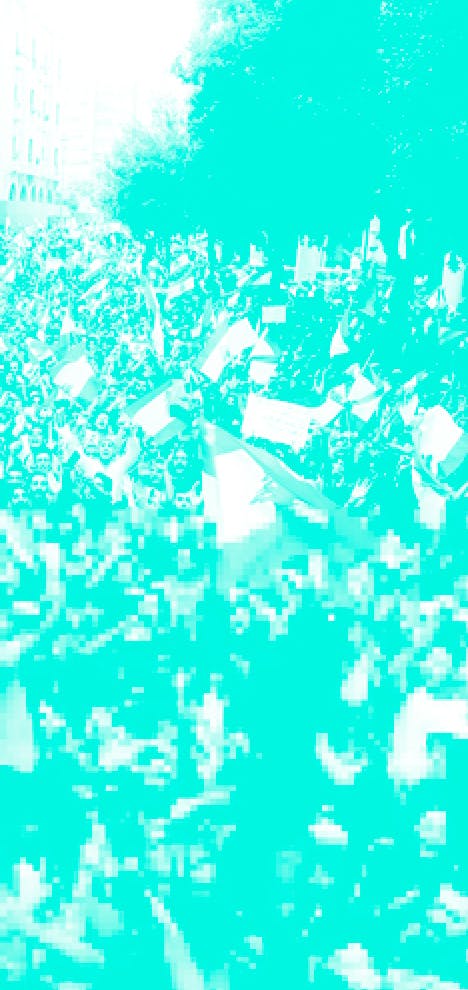
The Histories and Geographies of the October 2019 Uprising
A project by Dr. Deen Sharp and Dr. May Farhat
In October 2019, large-scale non-sectarian protests erupted across Lebanon for three months. Lebanon has a long history of contentious popular politics but the 2019 revolt was different.
The October 2019 uprising was exceptional for its duration, its geographical breadth and depth, and the types of political unity and possibilities that it created.
The focus of the protesters on economic conditions, governance, and ecology unified the country and created new social formations, connections and solidarities. While the 2019 protests did not result in the downfall of the “regime” or the type of change the populous of Lebanon demanded, many refer to this moment as a “revolution” (thawra).
The Lebanon Unsettled project understands and engages the 2019 protests as a transformative moment for Lebanon.
This nationwide revolt opened up different ways of understanding Lebanon's history, space and identity. The revolt offered a new generation the opportunity to participate in political life and with it created new spaces of hope and imagination. Lebanon Unsettled contributes to the ongoing analyses of the meaning and consequences of the 2019 protest movement that are still being struggled over and created in Lebanon.
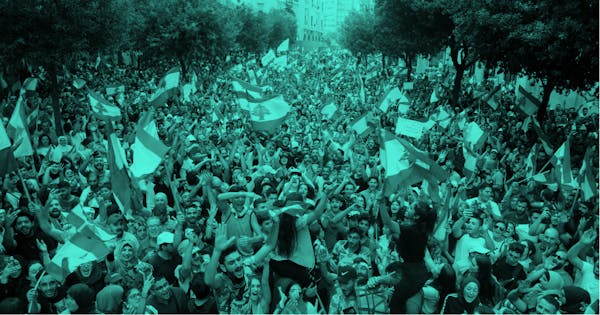
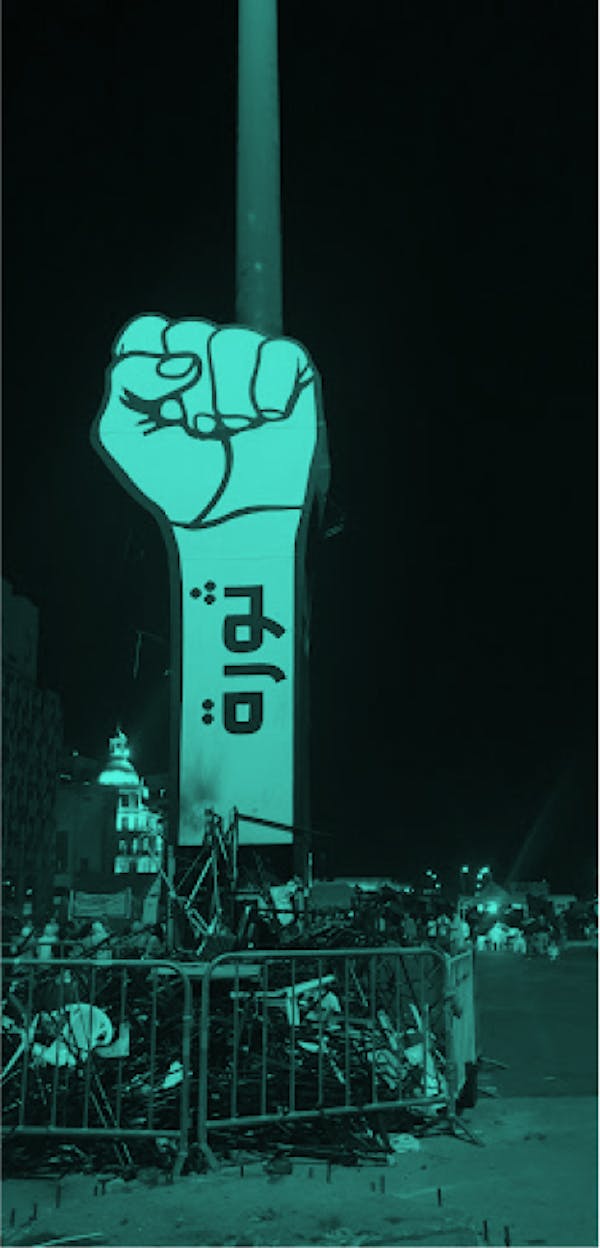
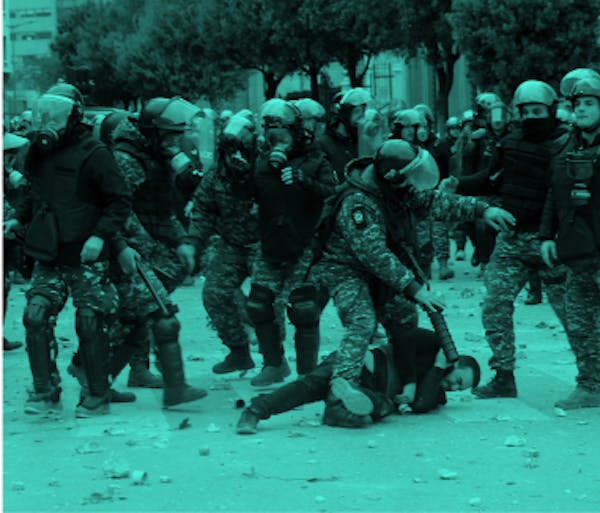
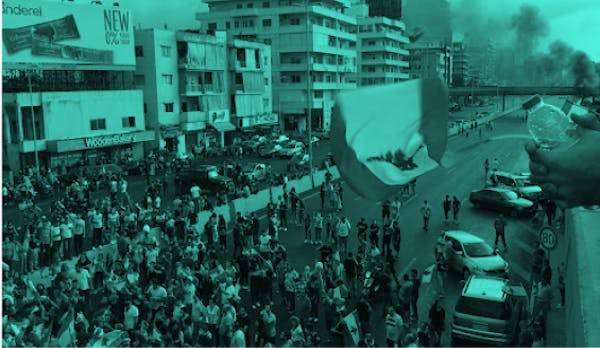
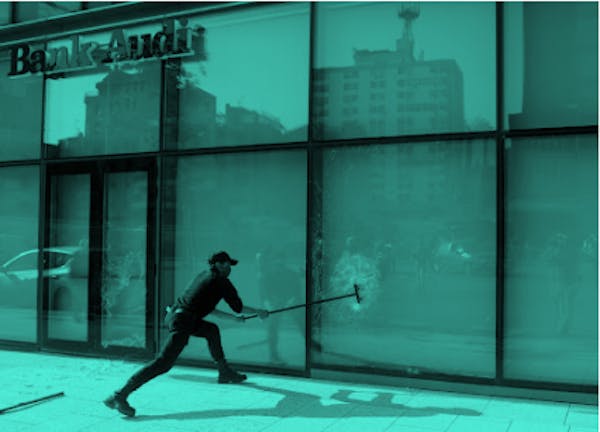
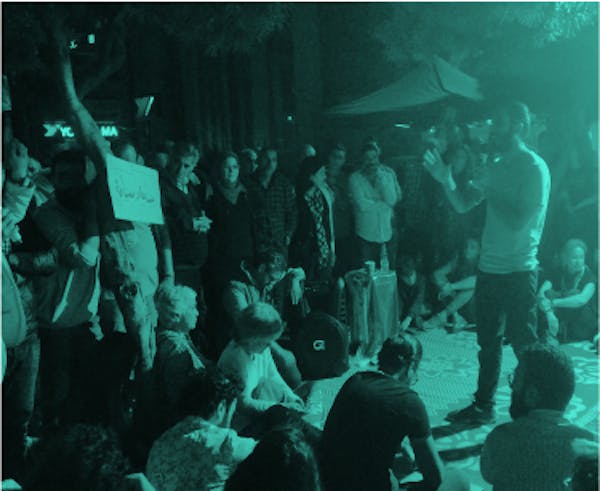
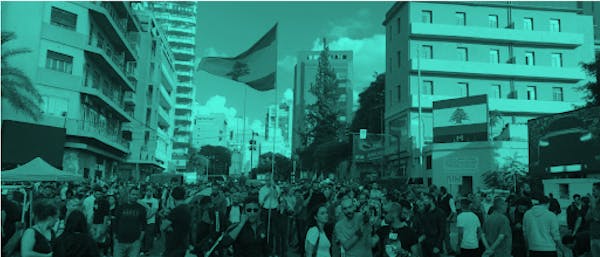
About Lebanon Unsettled
The Lebanon Unsettled project, by Dr. Deen Sharp and Dr. May Farhat, contributes to socio-spatial analyses of the 2019 protest by placing an emphasis on the revolts outside the central public spaces of the metropolis Beirut; where much of the protest converged and media and scholarly attention has been placed. Lebanon Unsettled brings to the fore alternative voices, geographies, and histories of the 2019 protest moment. What marked these protests was their geographical comprehensiveness. This project, through original research and speculative mapping, interviews, archiving, provides the historical and geographical context of the October 2019 protest.
This website features original research on popular mobilizations in Lebanon focused on 2019 and the results of a workshop held from July 25-29, 2022 at the campus of the Holy Spirit University of Kaslik (USEK) north of Beirut. This workshop included two “mapping” exercises with student participants, lectures by key scholars and activists and engagement with the USEK and the Beirut-based UMAM Documentation and Research archive.
Dr Fadi Shayya led the first mapping exercise entitled, ‘Intimate Legacies: Tracing the Spatiality of Actors during the 2019 Lebanon Protests’. Grounded in Actor-Network Theory, this exercise asked participants to trace their spatial-autobiographical journey during the 2019 Lebanon Protest. In the second mapping exercise, led by USEK graduates and doctoral candidates Maria Bassil and Marc el Samrani, students were asked to create a common performative map. This map focuses on space and the 2019 protests, and how this social movement affected collective identity in Lebanon.
About Lebanon Unsettled
The Lebanon Unsettled project is an academic collaboration between the London School of Economics and Political Science (LSE) and the Lebanese university the Holy Spirit University of Kaslik (USEK). The project is led by the co-Principal Investigators, Deen Sharp, a Visiting LSE Fellow in Human Geography at the Department of Geography and Environment, and May Farhat, previously an Associate Professor at the Faculty of Architecture and Design at USEK and now with the Lebanese American University (LAU).
This project is part of the LSE Middle East Centre Academic Collaboration with Arab Universities Programme, funded by the Emirates Foundation.
USEK was selected as a partner university for this collaborative project with LSE for several reasons. First, is its geographical location. The vast majority of international collaborations with Lebanese universities are undertaken with universities in Beirut. USEK’s campus is in Kaslik, 20 km north of the capital, and the university serves a student population who mainly come from the coastal urban areas of Jounieh, Jbeil, and Batroun, as well as from the towns and villages of Mount Lebanon. Second, is the university’s unique history. It is the first university to be established by Lebanese nationals, notably the Lebanese Maronite Order of monks. Founded first as a scholasticate in 1938, it became officially a university in 1962. USEK in recent years has made efforts to engage in serious scholarly research and critical inquiry. USEK has expanded, for instance, its Special Collections and Archives which now includes the personal archives of notable Lebanese figures and families, like those of the Sursock family, papers of former Lebanese presidents, as well as an oral history project on the Lebanese civil war. We aim this project at encouraging and showcasing to the USEK community critical research tools and social theory, what it means to create an archive, and the relationship between knowledge and power.








